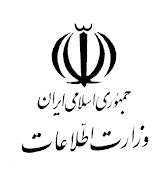
By Philip Klein
September 9.09
Barack Obama's choice of Leon Panetta, the former congressman who went on to serve as chief of staff for President Clinton, to head the Central Intelligence Agency has members of the intelligence community scratching their heads.
To defenders of the choice, Panetta's reputation as a competent manager and loyalty to Obama may help to shake up the agency and keep it from undermining the White House. But several ex-CIA officials contacted by TAS greeted the pick with trepidation.
"Everybody is shocked and concerned about his lack of any intelligence experience," a former senior officer at the CIA told TAS, asking that his name be withheld because he still does some work with the agency. "What kind of signal is this sending?"
One fear the ex-official raised is that the pick is an indication that Obama, like President Clinton before him, does not have much of an interest in intelligence. Another possibility is that Panetta can be a repeat of the failed tenures of Stansfield Turner under Jimmy Carter and John Deutch under Clinton -- both of whom
were outsiders brought in to reform the agency.
Initially, John Brennan, who had a strong intelligence background, was seen as the leading candidate to head the agency under Obama, but he withdrew his name from consideration after coming under fire from liberals, who associated him with Bush administration detention and interrogation policies. Panetta has been a fierce critic of such practices.
To skeptics, the fact that interrogation policy played such a crucial role in the selection process indicates that the incoming administration may not understand the broader scope of the agency's responsibilities.
"People think the left-wing bloggers are running the asylum now," the ex-CIA official lamented. "They want to completely neuter the agency."
However, he noted that if Stephen Kappes were to remain as deputy director to run the day-to-day functions of the agency, it would be a reassuring signal to the rank and file.
An additional source of confusion resulting from the appointment is what Panetta's role would be relative to retired Admiral Dennis Blair, who has been chosen as director of national intelligence, a position created in the wake of the September 11attack to oversee all intelligence agencies.
"When he was chief of staff, Panetta was the gate keeper who controlled the president's schedule," explained another former CIA official. "I find it very difficult to believe that he would be at ease reporting to or through Admiral Blair. Who's in charge? Is the director of the CIA in charge of the final product that reaches the president? Or is the Office of National Intelligence?"
To this former official, the nation would have been better served if Obama had appointed somebody who had CIA field experience, who understood the institutional culture, and who is apolitical, rather than a Democratic Party loyalist who may only tell the president what he wants to hear.
In contrast, Ken deGraffenreid, who was a senior intelligence official in the Reagan White House and also at the Department of Defense during the current Bush administration, presented a critical assessment of the state of the CIA.
A significant portion of his workload at the Pentagon involved trying to undo many of the things the CIA did to weaken the Bush administration, deGraffenreid said, including leaking intelligence reports to the media that undermined the administration's foreign policy. This is how deGraffenreid sees the Panetta move making sense for Obama.
"If you put a loyalist in there who runs things, maybe he is in a position to block some of the shenanigans that the CIA pulls," he said. "Panetta is probably a good political move from the perspective of protecting Obama's rear end."
According to deGraffenreid, those in the CIA have lost sight of the fact that they're not supposed to craft foreign policy.
"They're out of constitutional control and they've become incompetent at their basic function of getting secrets," he said. "If the criticism of Panetta is that he does not have intelligence experience, my answer is, so what? Let's get down to brass tacks. Does he know what's wrong and is he going to bring that agency under constitutional control?"
While politically speaking it may prove a savvy decision for Obama to have Panetta at the CIA, he said that it's unclear if either the president-elect or his choice to head the agency understands that "it's a Herculean task to do what needs to be done for American intelligence."
"It's unclear to me whether Obama understands the degree to which we need intelligence in this world, because he's mostly a domestic guy," deGraffenreid said. "From the campaign it didn't seem that he had a very realistic understanding of the dangers in this world."













No comments:
Post a Comment